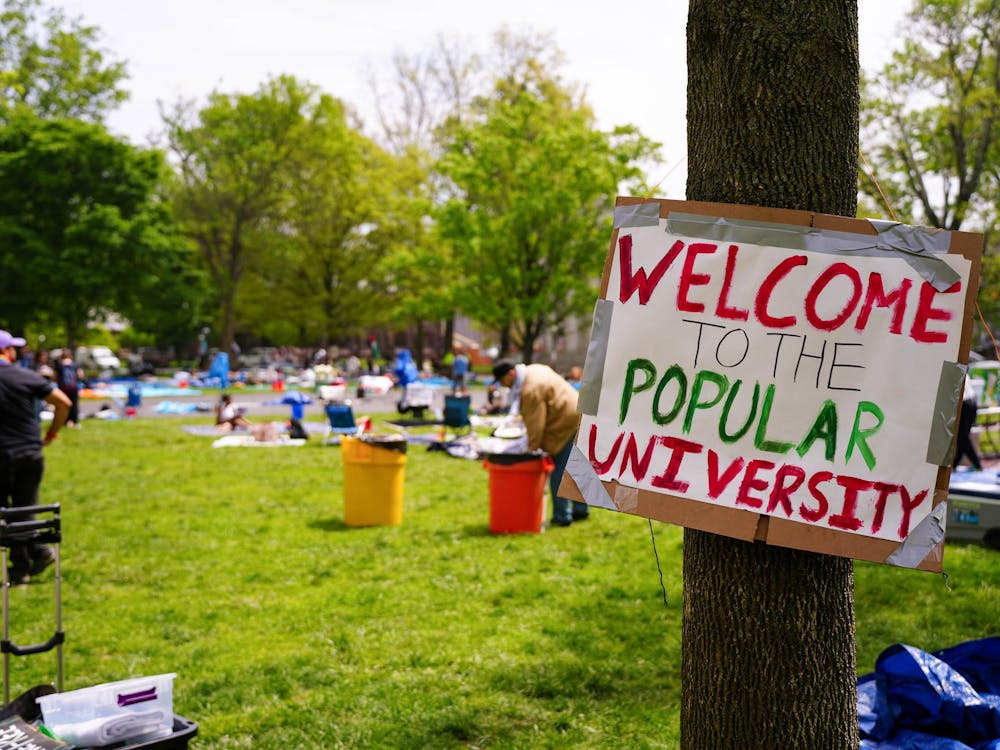University of Michigan President Mark Schlissel ’79 was fired on Jan. 15 by the university’s Board of Regents following an investigation into an inappropriate relationship between Schlissel and a female subordinate. Schlissel is a member of Princeton’s Class of 1979.
The investigation was spurred by an anonymous complaint received by the Board in early December. The Board found that, between 2019 and 2021, Schlissel engaged in communication using his University email address with the employee in a manner “inconsistent with promoting the dignity and reputation of the University of Michigan.”
Schlissel did not respond to a request for comment by The Daily Princetonian by the time of publication.
The Board released a 118-page document containing email communications between Schlissel and the subordinate.
“Our community and our state deserve as complete an understanding of this situation as possible,” the Board said in a statement of its move to publicize these online communications. The documents also serve to demonstrate the alleged “inappropriate conduct” on the part of the former university President. The documents have been redacted by the Board to conceal identifying information and protect the privacy of the subordinate.
In addition to releasing the email conversations, the Board released the letter sent to Schlissel explaining the decision to remove him as President. According to the formal notice, Schlissel violated the university’s policy on intimate relationships between supervisors and supervisees.
The policy, established in July 2021 in response to allegations of sexual misconduct aimed at former provost Martin Philbert, seeks to create a “workplace that is inclusive and free from abuse of power, coercion, sexually harassing conduct and favoritism.”
Among the standards of conduct expected of all employees is an immediate disclosure of any intimate relationships in the workplace by a supervisor. “Failure of the supervisor to disclose an intimate relationship is a serious offense and cause for discipline, up to and including dismissal from employment,” the policy reads.
The letter to Schlissel includes direct references to his comments exchanged through emails that illustrate his use of inappropriate tone and language. The Board asserts that Schlissel’s conduct was “particularly egregious” given his “knowledge of and involvement in addressing incidents of harassment by University of Michigan personnel” and his “declared commitment to work to ‘free’ the University community of sexual harassment or other improper conduct.”
Citing Schlissel’s own comments in response to the sexual misconduct of Philbert, that profess his dedication to creating a safe community and a culture that rejects any form of misconduct or harassment, The Board wrote that “there can be no question that you were acutely aware that any inappropriate conduct or communication between you and a subordinate would cause substantial harm to the dignity and reputation of the University of Michigan.”
In October, Schlissel announced that he would step down from his position as president in June 2023, one year before his contract was set to expire. This decision came as some Board members grew concerned about Schlissel’s capacity as president due to his management of both the COVID-19 pandemic and the allegations against Philbert.
Previously ensured payment of his salary for two years following his resignation, the revelation of his relationship with a subordinate and subsequent termination led the Board to revoke that privilege. Schlissel was also commanded to return all university property.

Princeton University students responded with disappointment towards the Princeton alum.
“It really irks me that Schlissel’s other massive failures as President — namely, his handling of a sexual abuse scandal in UMich Sports Medicine and his leadership during the COVID pandemic — didn’t lead to him getting fired,” said Ryan Konarska ’25. “To me, this is like arresting Al Capone for tax evasion. Even as he was given a golden off-ramp by the Board of Regents to an easy retirement, his misuse of technology still led to him being axed.”
“His actions were a misrepresentation of what the UMich community stands for and, in my opinion, his actions were also a misrepresentation of what the Princeton community — including the alumni — should stand for,” said Chichi Aguwa ’25. “Especially because he was in a position of power.”
Former University of Michigan President Mary Sue Coleman was selected by the Board to serve as Interim President. Coleman led the university from 2002 to 2014 as Schlissel’s predecessor. “While saddened by the circumstances, I am honored to be asked to again serve the University of Michigan,” she remarked in a statement. The Board will affirm Coleman’s appointment and Schlissel’s dismissal during its formal session on Feb. 17.
The University of Michigan’s Communications Office responded to an inquiry from the ‘Prince’ with a link to all public statements and the 118-page document.
Alexa Marsh is a staff news writer for the ‘Prince’. She can be reached at alexagmarsh@princeton.edu.









